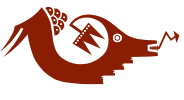This fascinating study surveys the role of food over the past four million years of human prehistory. The author, Robyn Cutright, an anthropologist at Centre College, develops three major themes concerning the role of food. First, humans are the product of evolutionary development molded by nutritional requirements and available foods. We are omnivores and generalists and proved to be adaptable to a changing environment. Second, humans are cultural eaters, and we must learn what and how to eat. Cuisine is intensely social, leading to ritual and political meals in addition to everyday meals. Meals are shaped by class, by conquest, and political strategies.
The third theme concerns how archaeologists have used food to understand the human past. New technologies such as ancient DNA analysis, stable bone isotopes, phytoliths, and carbon dating are giving us unprecedented data on the human diet. The long development of human food covers the use of fire to cook and the importance of the domestication of plants and animals to enhance the human diet and change how societies are organized. Case studies over the eons illustrate these developments. She concludes, “We are what we ate.”



